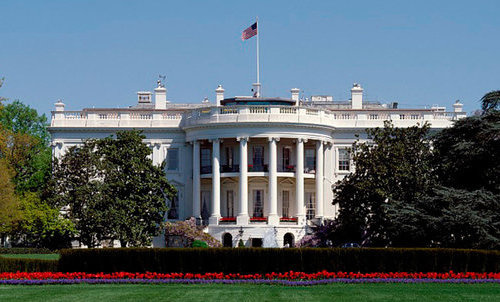The Unitarian Universalist Service Committee advances human rights through grassroots collaborations.
Legal Victory Should Be First Step Toward Expanding Sanctuary
April 28, 2017
UUSC applauds the decision of District Court Judge William Orrick last Tuesday to block the implementation of the Trump administration’s executive order to cut funding to so-called “sanctuary cities” nationwide. This preliminary injunction reaffirms the right of local governments to serve all their residents, regardless of immigration status, and to limit their cooperation with federal immigration enforcement programs like civil “detainers” that operate outside the court system and—frequently—in violation of the constitution itself.
However, this case also highlights the ways in which undocumented residents will continue to be at risk, even in so-called “sanctuary” jurisdictions. The court’s decision may have found this particular executive order to be a blatant case of overreach, but it leaves many of the tools that the federal government can still use to compel local jurisdictions to share information with Immigration and Customs Enforcement (ICE) through the criminal justice system untouched. This continues to expose undocumented folks to the threat of raids and family separation. It therefore points to the need for “expanded sanctuary” policies that end mass arrest and over-policing, not just traditional sanctuary.
President Trump’s January 25 executive order on “Enhancing Public Safety in the Interior of the United States,” was blatantly unlawful and unconstitutional from the start—especially in its threat to designate “sanctuary jurisdictions” as “not eligible to receive federal grants[.]” The District Court on Tuesday ruled that it is only Congress, not the President, who has the power to attach conditions to federal grant programs. Our democratic Constitution ensures that the legislative branch makes the law, not the dictates of one individual, and Judge Orrick observed in his ruling that Congress has repeatedly failed to pass legislation in recent years that targets sanctuary cities in ways similar to this executive order.
It is important to recognize, however, the limitations of what the courts alone can do to protect sanctuary policies. The ruling does not, for instance, remove the laws already on the books that compel cities to cooperate with federal immigration enforcement in other quite dangerous ways.
The three federal grant programs with immigration conditions already attached to them require local jurisdictions to share information with ICE about a person’s immigration status when detained. Because this part of federal law still stands, even so-called “sanctuary cities” must send the fingerprints of every person they arrest to a federal database that is shared with ICE. As San Francisco argued in its complaint in this case, this effectively “allows ICE to determine the immigration status of everyone in San Francisco custody.”
This means that under existing law, there are still serious limitations around how much a sanctuary city can protect its undocumented residents through purely immigration-related policies. As Albert Saint Jean from the Black Alliance for Just Immigration (BAJI) has put it, “ As an undocumented person, if you are arrested for jumping [a subway turnstile], that arrest means your fingerprints will be taken and given to a federal database and guess what—now ICE knows where to find you. This is the knowledge that facilitates ICE raids. All in a sanctuary city.”
This is one of the many reasons why “sanctuary” policies for one group of people will never suffice until we have expanded sanctuary for all. Undocumented people will never be protected from raids so long as our cities don’t also end racist and discriminatory law enforcement practices that expose certain communities to systematic mass arrest and mass incarceration.
Inspired and informed by the analysis of Mijente, BAJI, Black Youth Project 100, and other groups leading the front-line struggle against criminalization, the UUA and UUSC have joined together to launch the “Love Resists” campaign to stand in solidarity with the movement to expand sanctuary and end all policies that criminalize and stigmatize anyone in our communities.
